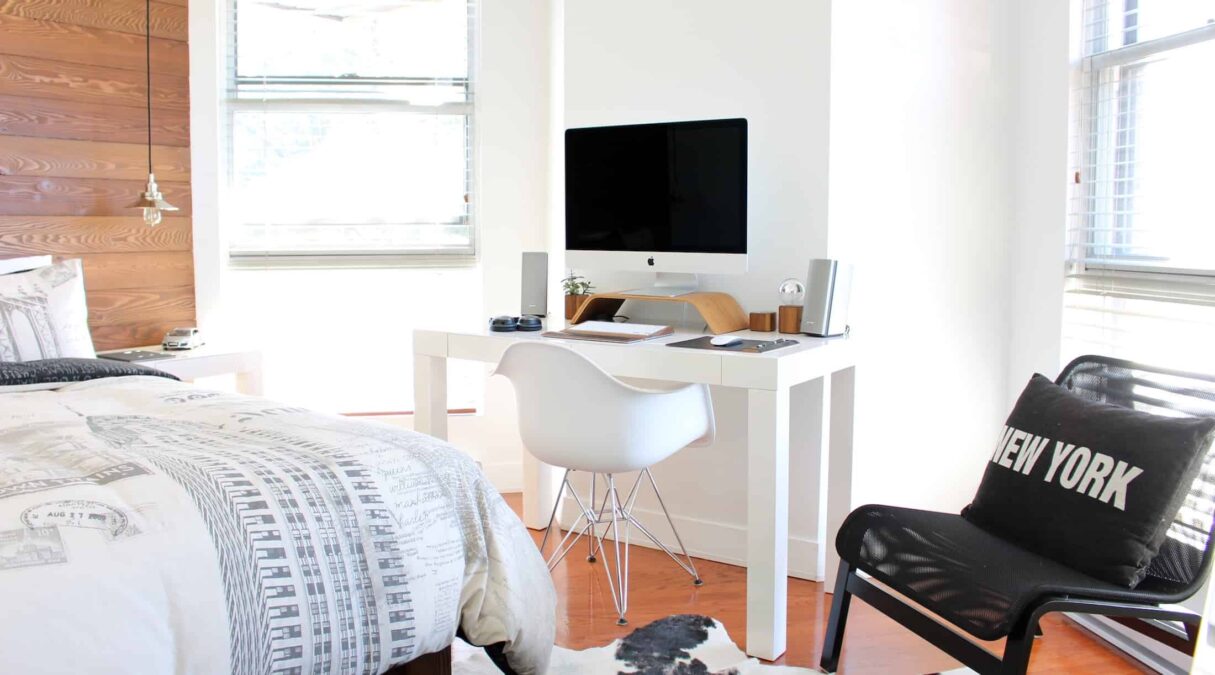A Comprehensive Guide to Rent a Room: Everything You Need to Know?

Finding a place to live can be daunting, especially if you need more time to purchase or rent an entire apartment or house. That’s where the option to rent a room comes in. Whether you’re a student, young professional, digital nomad, or just someone looking to save on housing costs, renting a room is an affordable and flexible solution. In this article, we’ll dive into everything you need to know about renting a room, from finding the perfect space to understanding the legalities and benefits.
Why Rent a Room?
Renting a room is increasingly popular for people who value cost-effective living arrangements. Here’s why renting a room might be the perfect choice for you:
- Affordability: Renting a room is often significantly cheaper than renting an entire apartment or home. This makes it an ideal choice for those on a budget.
- Flexibility: Short-term leases and sublet options allow tenants to rent a room for as little or as long as they need.
- Community Living: Renting a room often means sharing space with other people, which can lead to new friendships and networking opportunities.
- Convenience: If you’re moving to a new city or country, renting a room can be a temporary and hassle-free way to settle in while you get acquainted with the area.
Whether renting for financial reasons, convenience, or to downsize your living situation, renting a room offers numerous advantages over traditional housing arrangements.
Where to Find a Room for Rent
If you’ve decided to rent a room, the first step is to find one that suits your needs and preferences. Here are some common methods to explore:
- Online Listings
Online platforms are the most common way to search for rooms for rent. Websites like Craigslist, Roomster, SpareRoom, and Facebook Marketplace are great places to start. Many platforms allow you to filter results by location, budget, and other preferences like pet-friendliness or shared utilities.
- Word of Mouth
Let friends, family, or colleagues know you’re looking to rent a room. Often, people find great options through personal referrals. This method ensures trust since someone you know is vouching for the space or landlord.
- University Housing Boards
If you’re a student, most universities have housing boards or websites where students can post available rooms or roommates. These are great for finding affordable and convenient rooms near your school.
- Co-Living Spaces
Co-living spaces are modern housing options where individuals rent a private room but share communal areas such as kitchens and living rooms. Popular co-living companies include Common, WeLive, and The Collective.
- Real Estate Agents
If you’re in a time crunch or looking for professional assistance, hiring a real estate agent can save you time and ensure you find a room that meets your needs.
What to Look for When You Rent a Room
Not all rental rooms are created equal, and it’s crucial to thoroughly vet your options before committing. Here are some things to consider when searching for the perfect room:
- Location
Choose a location that is convenient for your daily routine. If you must commute to work or school, ensure public transportation or major highways are nearby. Consider the safety of the neighborhood, as well as its proximity to grocery stores, restaurants, and other amenities.
- Cost
Don’t forget to account for additional expenses like utilities, Internet, and parking when comparing prices. Some landlords include these costs in the rent, while others charge them separately.
- Room Size and Furnishings
Check whether the room meets your space requirements. Is it furnished, or will you need to provide your bed, desk, or wardrobe? Furnished rooms can save you money upfront but may cost more in rent.
- House Rules
Living with others often involves shared spaces and mutual respect. Find out if there are any house rules, such as quiet hours, cleaning schedules, or restrictions on visitors.
- Lease Terms
Read the lease carefully before signing. Ensure you understand the rental agreement’s length, the deposit requirements, and any penalties for breaking the lease early.
Questions to Ask Before You Rent a Room
Before committing to a rental, gathering as much information as possible is important to avoid surprises. Here are some questions you should ask:
- What’s included in the rent? – Are utilities, Internet, and other services included, or will they be charged separately?
- How many people will I be sharing the property with? – Understand who your potential roommates are and how many people live in the house or apartment.
- What’s the policy on pets? – If you have a pet or are allergic to animals, ensure the rental’s pet policy aligns with your needs.
- What’s the condition of the property? – Visit the property in person if possible and inspect the room, bathroom, and shared spaces for cleanliness and upkeep.
- What’s the security deposit amount? – Know how much of a deposit is required and the conditions for getting it refunded when you move out.
Benefits of Renting a Room
Renting a room offers unique benefits that go beyond cost savings. Here’s a deeper look at some advantages:
- Fewer Responsibilities
You typically don’t have to worry about property maintenance or large household tasks when renting a room. Your landlord or roommates often handle those.
- Opportunities to Socialize
Living with roommates provides opportunities for social interaction. For those moving to a new city, this can be a great way to meet people and form connections.
- Lower Environmental Impact
Sharing living spaces is eco-friendly since it reduces overall energy and water usage. This can be a great option for minimizing their carbon footprint.
- Short-Term Flexibility
Many room rentals come with month-to-month lease options, making leaving easier if circumstances change.
Potential Challenges When You Rent a Room
While renting a room has many benefits, there are some challenges to be aware of:
- Lack of Privacy
Sharing a home means you’ll have less privacy compared to living alone. Be prepared to compromise and set boundaries with your roommates.
- Compatibility Issues
Roommate relationships can make or break your living situation. Clashing personalities, different lifestyles, or poor communication can lead to conflicts.
- Limited Control Over the Space
As a tenant renting just a room, you may have little say in how shared spaces are decorated, cleaned, or organized.
- Lease Restrictions
Some landlords may impose restrictions, such as not allowing overnight guests or limiting your ability to change the room (e.g., painting or adding decor).
Tips to Make the Most of Your Room Rental Experience
To ensure a positive experience when you rent a room, follow these tips:
- Communicate Openly: Establish open lines of communication with your roommates and landlord.
- Respect Shared Spaces: Clean up after yourself and respect the communal areas.
- Set Boundaries: Discuss rules and boundaries with your roommates to avoid misunderstandings.
- Be a Responsible Tenant: Pay your rent on time, follow house rules, and treat the property carefully.
- Create a Comfortable Space: Personalize your room to make it feel like home, even if it’s a temporary living arrangement.
Conclusion
Renting a room is an excellent option for affordability, flexibility, and convenience. Whether you’re a student, traveler, or professional, renting a room offers an alternative to traditional housing while allowing you to share costs and experiences with others. However, it’s essential to approach the process thoughtfully—by asking the right questions, reviewing the lease terms, and understanding your responsibilities, you can avoid potential challenges and enjoy a successful rental experience.
The next time you’re considering a move, remember that the choice to rent a room might be exactly what you need to achieve the perfect balance between cost and comfort. Happy house hunting!



